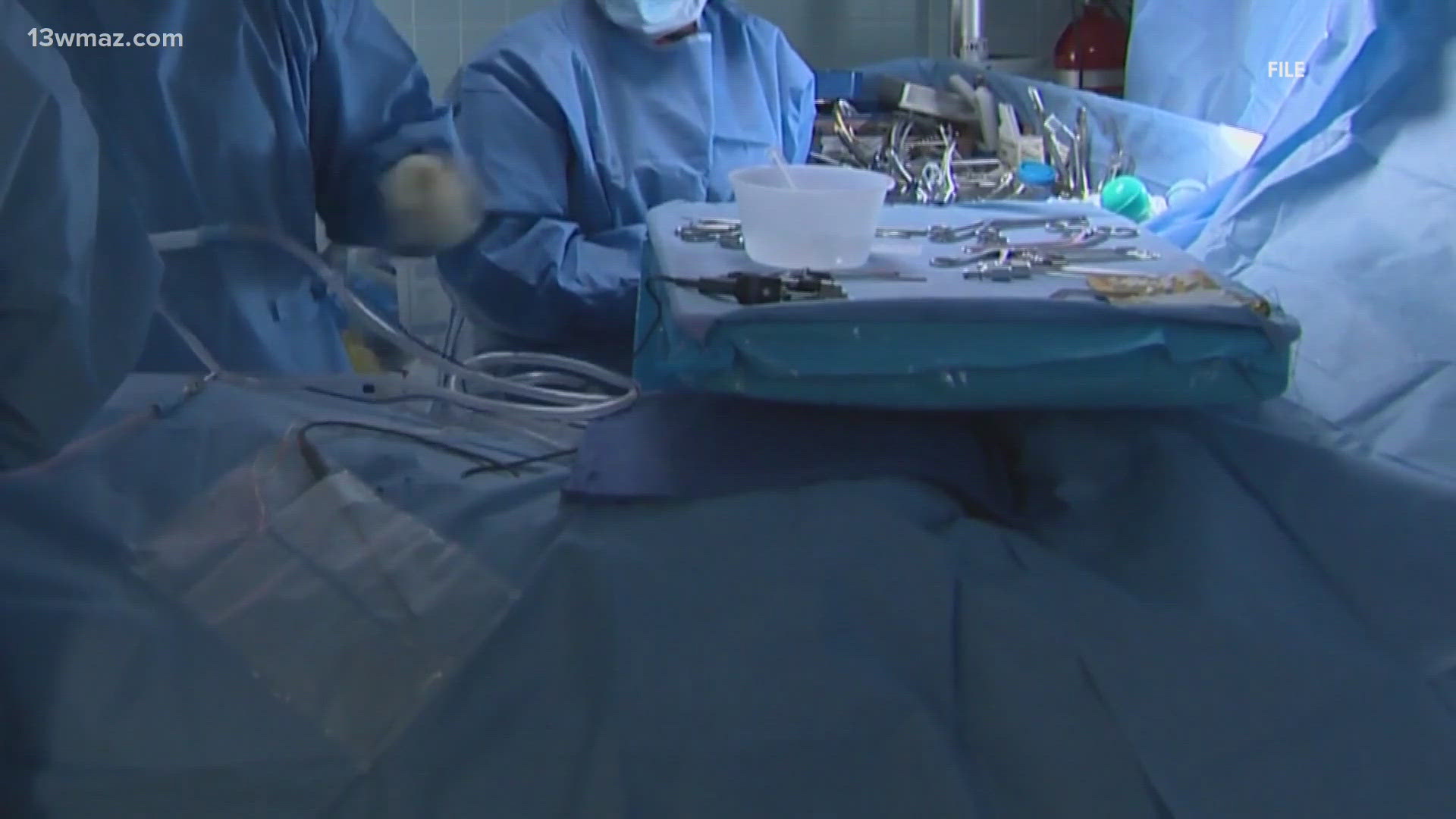FORT VALLEY, Ga. — Chasity Polk had doubts about becoming an organ donor.
"I only knew as a black female, like you're not supposed to have organ donation or organ donor on your license just out of fear that if it came to an emergent situation, your life wouldn't be saved out of being able to pass it on to the next person," Polk said.
The senior Fort Valley State University nursing student isn't alone. According to a National Medicine Association study from 2001, 38% of African American participants were not registered as donors, out of fear of medical neglect.
However, the need for donations is higher in minority groups.
"There's all these innuendos and different things out there about organ donation that's floating around," Bobby Howard, Director of Multicultural Donation Education program for LifeLink of Georgia, said.
Meanwhile, according to the National Institutes of Health, only 5.5% of transplant surgeons are Black. So, LifeLink of Georgia is partnering with Historically Black Colleges and Universities such as Fort Valley State University to diversify the demographic.
"To work with them, to debunk some of those and say, 'Wow!' I've heard of that, but now I've had the opportunity to be a part of it, I see where those things are not true that you guys are here, and we're here to take care of families and work with families and healthcare professionals and to do everything they can to help save a life when all that is done," Howard said.
"But to also see it and be a part of it in that setting. It was very enlightening, and I believe it opened up their eyes, and and hopefully, you know. We hope we didn't get them late, that a few of them will will possibly think this is a great career opportunity."
After a day of shadowing and speaking with donation experts, Polk said she is going to add her name to the registry and has thoughts about pursuing the transplant field as a nurse.
"(We) literally got a breakdown of how everything works between the like interdisciplinary studies and everyone that goes feeds into this whole process. We were able to see an honor walk, which is the ceremony where the person that's donating is wheeled out with their family or loved ones," Polk said.
"I'm actually in the process of trying to convince my family to go with me so we can all do it together; I feel like that would kind of make it all the more special."
If interested in becoming an organ donor, contact the Georgia Department of Driver Services for registration information.

